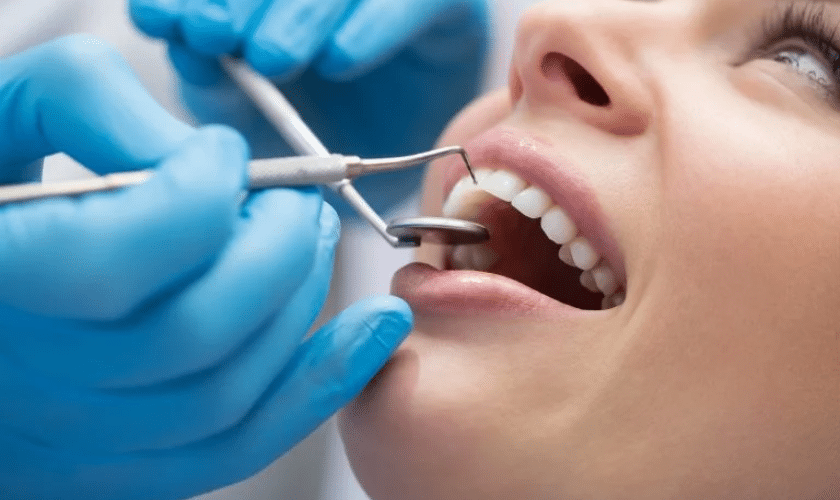Maintaining a healthy smile goes beyond mere aesthetics; it is a crucial aspect of overall well-being. Preventive dentistry plays a pivotal role in preserving oral health and preventing various dental issues. By adopting effective practices, individuals can proactively safeguard their smiles, promoting longevity and vitality. In this discussion, we will delve into the top five preventive dentistry practices that contribute to a radiant and healthy smile.
Regular Dental Check-ups and Cleanings
Routine dental examinations have been noted for their positive impact on both oral health and oral-health-related quality of life (OHRQoL). These check-ups effectively lower the likelihood of developing dental caries and periodontal disease, both of which are significant contributors to tooth loss. Despite the prevalence of these oral issues, regular dental check-ups actively contribute to the preservation of one’s natural teeth.
In societies with an increasing aging population, the retention of natural teeth in older individuals is widely recognized as a crucial factor in extending healthy life expectancy. Here, routine dental check-ups are acknowledged for their role in supporting this goal. Dental hygienists, as specialists in preventive oral care, assume a vital position in the context of regular dental examinations. Their involvement encompasses the provision of preventive dental services and the dissemination of oral health education, reinforcing the overall impact of these check-ups on sustained oral health (Inoue et al., 2021).
Daily Oral Hygiene Practices
Brushing Techniques: The cornerstone of daily oral care is the proper brushing of teeth. Effective brushing techniques help remove plaque and prevent the onset of periodontal diseases. Dentists commonly recommend using a soft-bristled toothbrush and fluoride toothpaste. Brushing should be done in gentle, circular motions to ensure thorough cleaning without causing damage to the enamel or gums.
Flossing: Flossing is an integral part of daily oral care that often goes overlooked. The importance of flossing is mostly profound in terms of removing plaque and debris from areas between teeth where a toothbrush cannot reach effectively. Regular flossing helps prevent gum disease and cavities, contributing to overall oral health.
Antimicrobial Mouthwashes: The use of antimicrobial or fluoride-containing mouthwashes is another valuable component of daily oral hygiene. Most dentists suggest that antimicrobial mouthwashes can help reduce bacterial load, leading to healthier gums and fresher breath. They might also recommend specific mouthwashes based on an individual’s oral health needs.
Balanced Diet and Limiting Sugar Intake
Dietary habits play a vital role in oral health. Limiting the intake of sugary foods and beverages is crucial, as sugar consumption is a significant contributor to tooth decay. Reducing the intake of sugar emerges as a crucial preventive step in minimizing the risk of developing cavities. Moreover, individuals are more likely to embrace dietary recommendations provided by dental health professionals when these experts can emphatically convey that following the advice directly contributes to the prevention of cavities (van Loveren, 2019).
Fluoride Application
To effectively ward off dental caries, the use of fluoridated dental products stands out as the most efficient method. Fluoride, being an inherent component of the natural environment, is consistently encountered in the daily lives of individuals. It is important to note, though, that the concentration of fluoride may differ across regions. The concept of leveraging fluoride as a beneficial agent in preventing caries is not a recent development. It has long been recognized that consuming water containing 1 part per million (ppm) of fluoride can play a pivotal role in averting dental caries. It also enhances tooth strength, and notably, it does not adversely affect enamel (Kanduti et al., 2016).
Protective Measures for Oral Trauma
Oral trauma, often resulting from sports injuries or accidents, can have a significant impact on oral health. Adopting protective measures is crucial to prevent potential damage to the teeth, jaw, and surrounding structures. Here are some of the ways you can acquire protective measures for preventing oral trauma:
Mouthguards: The use of mouthguards during sports activities has been consistently proven to be an effective preventive measure against oral injuries. Athletes who wear mouthguards are at a significantly lower risk of experiencing dental trauma compared to those who do not use them. Mouthguards provide a protective barrier, absorbing and dispersing impact forces that could otherwise lead to fractures.
Custom-fitted Mouthguards: While over-the-counter mouthguards offer some level of protection, custom-fitted mouthguards provide superior effectiveness. Customization ensures a snug fit, offering enhanced comfort and stability during sports activities. Athletes are more likely to consistently use well-fitted mouthguards, increasing their overall effectiveness in preventing oral injuries.
Timely Intervention for Trauma: In cases where oral trauma does occur, prompt and appropriate intervention is essential to prevent long-term complications. Immediate attention to dental injuries minimizes the risk of further damage and enhances the chances of successful treatment. Seeking professional dental care promptly after an injury can make a substantial difference in the outcome and potential long-term consequences.
Embracing a proactive approach to oral health through preventive dentistry practices is fundamental for cultivating a lifelong, healthy smile. By incorporating these habits into daily life, individuals can not only prevent common dental problems but also enhance their overall well-being. Remember, a healthy smile is not just about appearances; it reflects a commitment to self-care and a foundation for a happier, healthier life.
Reference List
– Inoue, Y., Shimazaki, Y., Oshiro, A., Zaitsu, T., Furuta, M., Ando, Y., … & Aida, J. (2021). Multilevel analysis of the association of dental-hygienist-related factors on regular dental check-up behavior. International journal of environmental research and public health, 18(6), 2816.
– van Loveren, C. (2019). Sugar restriction for caries prevention: amount and frequency. Which is more important?. Caries research, 53(2), 168-175.
– Kanduti, D., Sterbenk, P., & Artnik, B. (2016). Fluoride: a review of use and effects on health. Materia socio-medica, 28(2), 133.



